









4 TIMELINE: CRASH GAMES
6
INTERVIEW: SPRIBE CEO DAVID NATROSHVILI
12 A HISTORY OF CRASH GAMES WHAT GAMES



18 WHAT MAKES CRASH GAMES SPECIAL?
22 INTERVIEW: SPRIBE CCO GIORGI TSUTSKIRIDZE
28 THE PLAYER PERSPECTIVE
Gambling Insider takes a look back over the key moments in crash games, spanning an 11-year journey that served to re-define the modern online gaming industry
Eric Springer launches what is now largely credited with being the firstever crash game in MoneyPot
MoneyPot is sold and rebranded to BustaBit, which remains operational today as one of the pioneering crash game operators
David Natroshvili makes his first entrepreneurial endeavour into the iGaming industry –founding Spribe as a software application development company
Spribe announces the launch of its first crash game title –Aviator – making waves across the iGaming industry and quickly becoming the company’s flagship title
Following the release of Aviator and titles such as BC Originals and Chartbet, crash games begin to take flight via streaming platforms such as Twitch and YouTube







In the wake of the release of its first online poker offerings, Spribe obtains licensing approvals from the Malta Gaming Authority (MGA) and the UK’s Gambling Commission (GC)








Large-scale gaming suppliers begin entering the crash game space, with different variations of crash games starting to emerge across the global industry
2023
Spribe inks a new multi-year sponsorship deal with the UFC which sees the company gain significant branding exposure around all UFC live events
A live casino crash game – the first of its kind – is launched in the iGaming industry, marking a key moment of expansion for the genre


Aviator processing 400,000 bets a minute, with 50 million active monthly players, as crash games continue to surge in popularity


Spribe CEO David Natroshvili speaks to Gambling Insider about all things crash games, Aviator’s journey thus far and what the future holds for the crash vertical
A little red plane and a cash out button. Who would have thought these two features would create a whole gambling genre, going on to generate billions in wagers?
Well, the developers of the first crash games – that’s who. And, among the rocket jets, spaceships and even footballers that frequented the early years of the crash game vertical, it was the little red plane that ended up taking global gambling by storm.
That plane, of course, belongs to Aviator, created by Georgia-based supplier Spribe – and an important detail is that it was not the first crash game on the market. But neither was Facebook the first social network, nor Apple the first to make mobile phones. Amazon, meanwhile, has become one of the biggest companies in the world without necessarily introducing anything revolutionary; it simply began doing things better than its competitors.
For David Natroshvili, Spribe CEO and Co-Founder, expectations have already been exceeded. He tells Gambling Insider: “It’s been an incredible journey – from a bold idea to becoming the most recognised crash game in the world. What’s most rewarding is seeing how players globally have embraced it, turning it into a genredefining product.
“We knew we had something unique, but we didn’t fully anticipate the scale of success. Aviator was born from the desire to break away from traditional casino game models – something social, intuitive and modern. The global response exceeded our expectations.”
For Spribe, as we analyse in this publication’s ‘history of crash games’ feature, instant success was harder to come by. Natroshvili had to persevere, with his first trip to London not quite yielding the response Aviator receives today. But once one big name signed up, more quickly followed.
“One major milestone was going live with tier-one operators early on. Their trust opened doors to wider markets,” Natroshvili recalls. “Another was integrating multiplayer and chat features, which really elevated the engagement. Our regional partnerships, especially in Latin America and India, were also game-changing.”






























We knew we had something unique, but we didn’t fully anticipate the scale of success


Indeed, new operators are now able to onboard Aviator at a far lower cost than many other games. Why? The game’s standalone popularity and resonance with players globally means less of a need to market, reducing player acquisition costs.
Looking ahead, Natroshvili believes the future is bright: “We’ll see more immersive features, community-driven experiences and stronger gamification. But the core appeal – simplicity with excitement – will remain central. Crash is just getting started. I see it becoming a standalone vertical alongside slots and live casino. Its mobile-first nature and appeal to younger demographics give it a significant edge.”
There are plenty of crash games on the market but it is Aviator that dominates market share. Its leaderboards and chat features create the social gaming element, while its cash out option (which all pure crash games have) gives players the option to participate rather than simply observe. Aviator stands out due to its recognisability and simple, hugely welcoming interface. Again, we return to our little red plane. “Crash games are interactive, real-time and social – players feel in control. The simplicity of pressing cash out at the right moment adds suspense and skill, unlike most passive casino games,” Natroshvili explains.
Indeed, the same budget, whether $10, $100 or $1,000, will last longer over time with a crash game than with many of gambling’s more traditional offerings. In today’s economy, while online gaming competes not just internally but against streaming sites, game consoles and other forms of digital entertainment, products that offer players more without having to pay more are on to a winning formula. There’s an added bonus if you can do this without increasing your company’s own production costs.
That winning formula is additionally backed by responsible gambling tools. By nature, crash games encourage players to keep coming back – that’s simply the result of a good product. So, hand-in-hand with this, Spribew has also integrated “smart session timers, betting limits and self-exclusion tools. Aviator promotes lower-stake, longer-play sessions, which naturally encourages responsible behaviour.”
We’ll see more immersive features, community-driven experiences and stronger gamification. But the core appeal – simplicity with excitement – will remain central










As already mentioned by Natroshvili, Aviator has seen huge popularity in Latin America and India. Geographically, the game is highly successful in a number of emerging markets, suggesting a desire for simplicity and entertainment without bettors having to learn any complex rules (a là blackjack).
“Latin America, parts of Africa, India and Southeast Asia are leading in adoption,” Natroshvili explains. In Latin America and Asia, players enjoy fast-paced, highfrequency gaming. Localisation and cultural relevance are key to success across all regions.”
Aviator has also marketed via influencers and brand ambassadors, such as UFC champions Alex Pereira, Merab Dvalishvili and Tom Aspinall, alongside Indian cricket’s Suresh Raina. These partnerships are “extremely effective,” Natroshvili says. “Influencers help humanise the game and bring it to new audiences in a relatable way. In markets like Brazil and India, they’ve been instrumental in building trust and visibility.”
While crash games continue to grow worldwide – and into new territories – core markets closer to home are, understandably, still a high priority. “Europe remains strong,” Natroshvili tells Gambling Insider, “especially among younger audiences looking for more interactive experiences. In Europe, there’s a trend toward social play and community interaction.”
So, with that little red plane already flying high, it’s certainly not the time for Spribe –or any other crash game developer – to cash out just yet. Aviator excels in terms of design, gameplay and marketability, while the crash games vertical itself continues to grow industry-wide. The question now is: where next?
“Simplicity is the foundation, but there’s room for evolution,” Natroshvili concludes. “We’re already exploring hybrid formats that retain the core mechanic while introducing new gameplay layers. The challenge is innovating without losing the essence.”












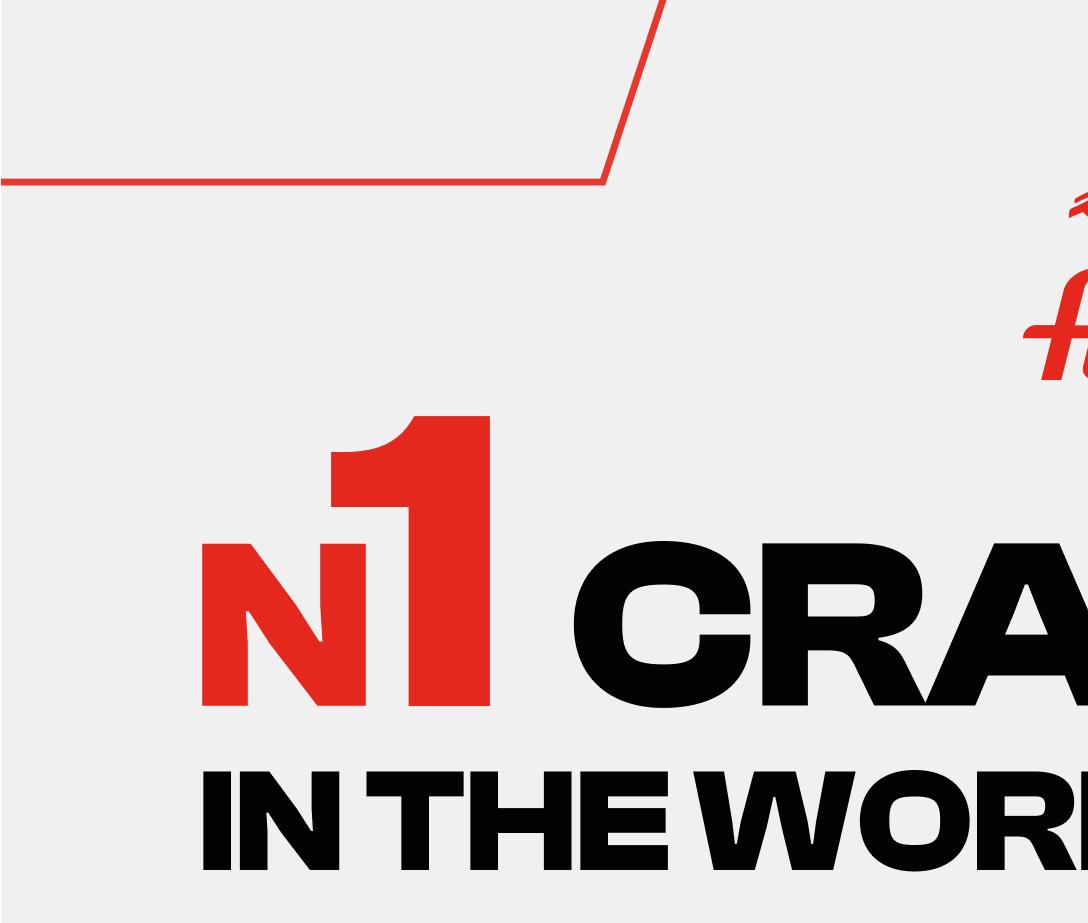






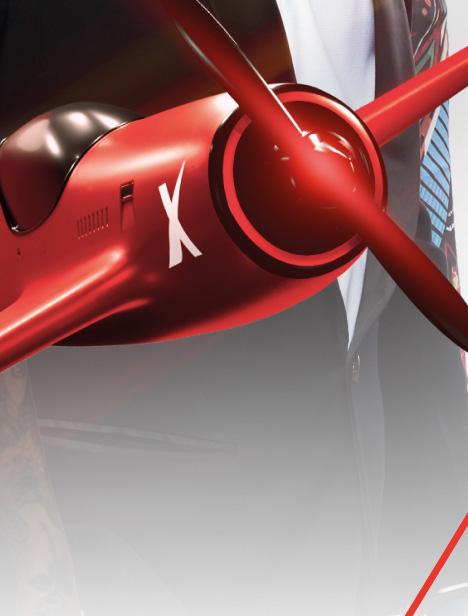

When you look at how casino games have evolved over the last few years, or more accurately not evolved at all, it’s easy to see why this renaissance in iGaming was so strong


Crash games is a growing vertical that has taken gambling by storm in recent years. But how did it originate, where is it now and how much influence has Aviator had on the genre?
The first online crash game is widely credited as MoneyPot, which launched in 2014, the same year as Guardians of the Galaxy released in cinemas, Grand Theft Auto V graced the Xbox One and Happy by Pharrell Williams topped the music charts. This all goes to say, crash games have been around for a very long time. Despite Spribe now dominating 90% of the crash game market, CEO David Natroshvili is always very open with the fact that he did not invent the genre. All his team did was take the basic concepts of the genre and focus on making the user experience better.
MoneyPot consisted of a simple x and y-axis graph and a single line that went up and down. It was incredibly simple, but it wasn’t particularly welcoming to look at. There was a lot of maths involved and it seemed more like a STEM assignment than a ‘game’, especially as it supported wagers made in Bitcoin rather than standard tender. As this game grew in popularity, the developer Eric Springer introduced a provably fair system with public seeding, which some operators still utilise today. MoneyPot was sold in 2015 and rebranded to BustaBit, which still operates today as the Grandfather of crash games.
By the end of 2020, almost every cryptocasino was offering proprietary crash titles, along with Plinko, Mines and other easy-to-create arcade-style games. Whether it was Crash by BC Originals or Crash by Stake Originals (their names were indeed this similar), the basic premise of the game was everywhere. When you look at how casino games have evolved over the last few years, or more accurately not evolved at all, it’s easy to see why this renaissance in iGaming was so strong.
When gambling moved online, very few things changed. Customers could play primarily slots or table games, and it has only been in the last few years that operators have introduced new verticals such as crash and live game show titles. A new era of iCasino was about to emerge.
‘THE
In August 2018, Spribe was co-founded by Natroshvili and a small group of friends. The company decided to focus on crash games. This wasn’t a new idea, but it certainly wasn’t a popular one at the time, either. They hired a team to help them establish a company, which is when Natroshvili decided upon the name Spribe. Despite Spribe being in its infancy, Georgia’s leading online gaming operator, Adjarabet, still saw potential in Natroshvili and his team and partnered with the company one month into its existence.
By 2019, ICE London was in full swing when Natroshvili landed. He had no stand, no contacts and no way to show his product to prospective customers – but he knew how to fix one of those issues. With a mindset of solving problems, Natroshvili went out to buy an iPad and loaded up an early iteration of Aviator before entering the halls of ExCel London. Unfortunately, the experience wasn’t all he hoped for. When Natroshvili arrived,


nobody would meet with him. He went to everyone to try and introduce his ideas, but nobody wanted to know. Many of the leaders in the industry initially dismissed Aviator, reducing it to “just a Georgian thing” that wouldn’t be successful outside the country. The resistance was huge and, despite getting a cold reception at ICE, Natroshvili was not deterred. Two people stopped to listen to him; a cleaning lady and EveryMatrix. One of these would encourage Natroshvili to keep going, while the other would soon become Spribe’s first customer outside of Georgia.
With Spribe finally gaining momentum, the company needed funds to support its upward trajectory. Natroshvili went through his entire contact list and offered 15% of Spribe for $150,000, but no-one took the offer. Instead, he turned to the one company that had believed in him since the start, Adjarabet, and borrowed funds to keep the dream alive. For ICE 2020, Natroshvili took out a loan for $55,000 to create Spribe’s first expo stand – a far cry from the millions they cost now! Of course, it wasn’t just Natroshvili that led Spribe to success, but a whole team of people within the company. Natroshvili prides himself on taking care of his team, affirming that “people are the magic ingredient, people are everything”. Building on the success of its portfolio of crash games, Spribe is home to over 300 employees and is live with over 5,000 casinos around the world.
The history of crash games would still be a short recollection if it weren’t for the players. MoneyPot and BustaBit were founded in the cryptocurrency communities, so it’s no surprise that many of the biggest crash games still find themselves popular with cryptocentred players. These customers are often spoiled for choice when it comes to proprietary titles, due to the crypto platforms being held to different standards with regulations and game-testing procedures than traditional operators. Not everyone wants to play at an online casino that isn’t a household name, though, so what options did they have?
Rather than assuming what players wanted, crash games providers did something many would consider too simple – and just asked players directly for their input. After receiving the feedback, the next step was brand awareness. To this end, Spibe partnered with the UFC, WWE, AC Milan and signed dozens of high-profile ambassadorships in the process, including Tom Aspinall and Alex Pereira. The company also knew to localise its efforts; as the player base grew in India, Spribe brought on Indian international cricketers Suresh Raina and Yuzvendra Chahal to join the roster. Within a few years, Spribe went from a relatively unknown brand to being broadcast alongside some of the biggest sporting events of the calendar.
This catapulted the crash game genre to the forefront of iGaming and introduced simple, gamified ideas to many people for the first time. Casinos have long been seen as intimidating, especially with all of the rules and winning theories surrounding the table games. For a newcomer, it can feel impenetrable, but crash games offered something different. They’re easy to learn, quick to play and welcome anyone and everyone into the live chat. Long gone are the days of stuttering to a dealer because you don’t know how to play Blackjack – crash games levelled the playing field and made betting accessible to everyone.
Attracting players is one thing, but keeping them is a whole other predicament. Welcome bonuses are there to introduce people to the platform, signpost them to particular games and boost their funds while they test the experience out – and these first impressions really do mean everything. If someone finds the games too difficult to understand or the UI isn’t user-friendly, they’re not likely to have a good time. Frustration is the biggest opposition to enjoyment.

They knew they were drawing a crowd who had never played casino games before, so they were presented with an opportunity do something a little unique
Crash game developers knew they were onto something different. They knew they were drawing in a crowd who had never played online casino games before, so they were presented with an opportunity to do something a little unique. Suddenly, the focus wasn’t on making online casinos accessible to play on the go or at home, it was on developing a sense of community and a strong atmosphere. This had already proved successful in other verticals, especially if titles had integrated chat functionality and a strong social media presence.
Natroshvili quickly found that one of the worst things you can do is underestimate customer knowledge. The rise in iGaming also led to a rise in affiliates, forums, blogs – and all of these brought with them guides and places where players could discuss the changes they wanted to see in the industry. After talking with players, many of them joked that they wanted a higher RTP rate, but this contradicted some in the industry who settled on lower RTP rates because they believed players didn’t even understand what it meant. If someone wanted to spend $100 playing casino games, there were two potential outcomes. They could play a low RTP game, lose their money faster and be out the door faster, which was still the business model for some platforms, or they could play the game for longer, get involved in the social elements, stick around long enough to want to try out some of the other arcadestyle games with the others in the chat. Which experience would lead to higher return rates? Crash games proved it was the latter – resoundingly.
After developers implemented social features and a high RTP rate into crash games, there was one thing left to do – make sure players had the experience they wanted. After looking into the customer base, it was important to learn that not only did around 85% of users play on mobile, but many of them played in areas with unstable internet. This wasn’t an issue when playing slots or table games, but crash games revolve around the cash out feature. If there was a delay in pressing ‘cash out’ and the action being taken, it could be catastrophic for the player and the operator in the long run. With over 50 million active monthly players and 400,000 bets placed every minute, Spribe knew it had to create the infrastructure to ensure no players were left behind.
By working with Amazon, Spribe’s servers were moved over to AWS, which meant that, no matter where the customer was located, whether they were in New York or New Delhi, there would be no latency issues with the games. If the game performs better, then the players receive a nicer experience and the operators, aggregators, and everyone else in the industry will benefit from it in the long run.
Crash games have carved out their very obvious USP within gaming, with Spribe and Aviator playing a monumental part in the journey. Where next for the genre? Some operators may still consider it a niche but, as time passes, the popularity of the vertical is ever-increasing. Players love the idea of controlling their destiny. Even live casino suppliers have now merged crash games into their thinking.
While responsible gaming will always need to be considered, crash games offer players everything they need to keep them interested – but also the control to cash out when they want, and stop playing if they need to. How much further can the vertical grow? There are still geographical markets it will conquer. Traditional slot games won’t go anywhere any time soon; but we’re now at a stage where any operator devoid of a strong crash game offering is tangibly losing out on customers. And, right now, that potential loss is still growing – we’re definitely not at the ceiling quite yet.

Crash games. They’re simple, they’re easy to learn and, right now, they’re everywhere. But what makes them special? Gambling Insider zones in...
For as long as wagering on games has existed, so too have the wounded cries of ‘this is rigged!’ and ‘the house cheated!’ But not with crash games.
Indeed, the vertical has implemented public seeding. By openly disclosing the specific blockchain and code used, players can verify that the crash results are indeed random and not part of the ‘House’s master plan’. Slots may still carry a generational accusation of being manipulated, but crash games have escaped that fate by allowing players to see the maths for themselves.
This feature is available on many turbo games, not just crash ones specifically. If there isn’t a seed, then a Random Number Generator (RNG) can be used instead, allowing players to verify it by a different method. People cannot understand what they cannot see, so this level of transparency immediately sets crash games apart from the rest of an online casino’s library.
These modern online titles also have another ace up their sleeve. When you’re playing slot games, it can be easy to fall into the trap of thinking the algorithm is out to get you, especially when you miss out on a win by the smallest amount! However, crash games are often played by thousands of people at the same time. An undesirable result won’t just affect you, it’ll affect everyone – and there is a great level of solidarity in that.
By implementing a chat feature alongside the live online casino game, players can ask questions, share strategies and even make friends along the way. It transforms the evening from sitting at home on your phone to a social experience – something that has been reflected in the popularity of live casino games, too.
Interestingly, the same could be said for Twitch streaming. The platform invited people in to watch others play video games and socialise together. It seemed like a niche idea at the time, but it proved to be incredibly successful and entire communities were formed around watching particular streamers.
What does this have to do with crash games? Well, in 2017, Twitch introduced Drops, which meant viewers could be ‘dropped’ a gift just for being active in the stream. It boosted engagement numbers and a few years later, crash game developers would offer the same feature. This makes players feel acknowledged while boosting chat interaction and player time in the game.
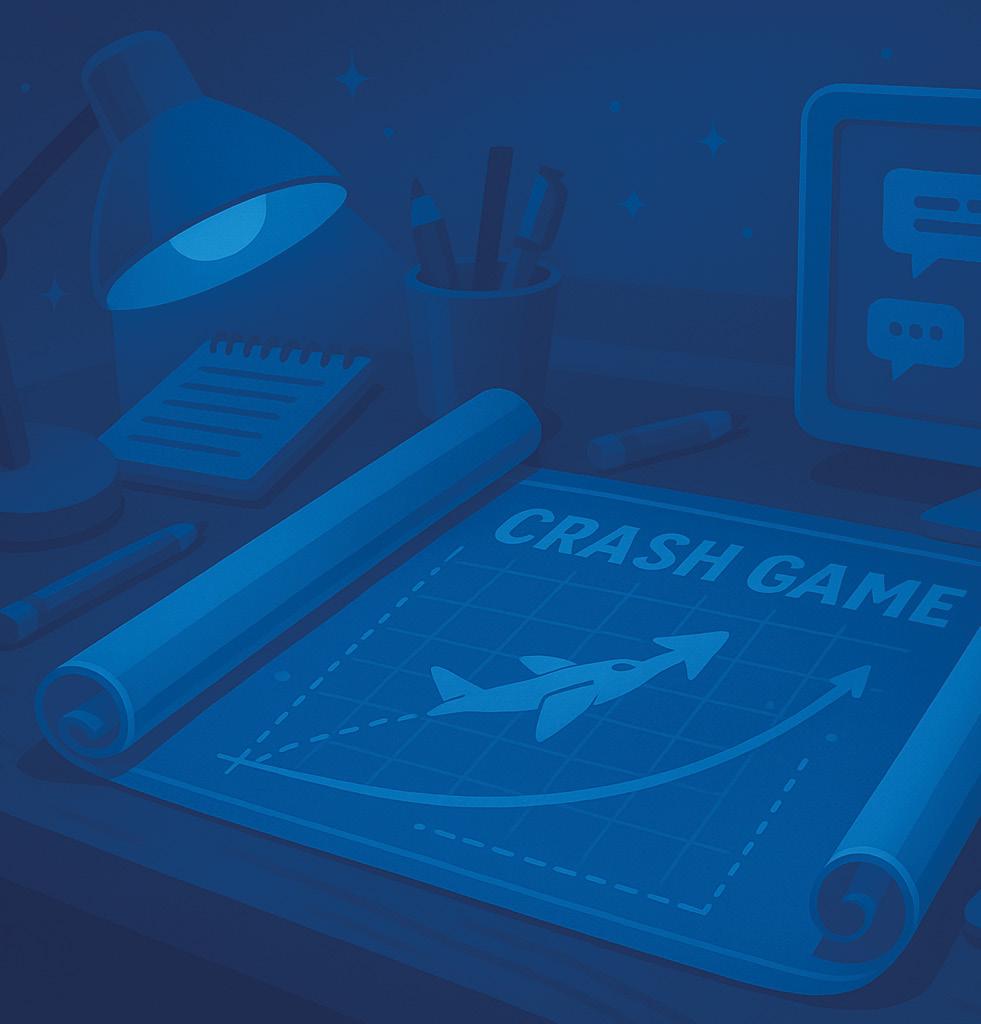
Are crash games the only casino games that allow players the chance to make decisions? Of course not. Table games like baccarat, blackjack and even Pai Gow all encourage players to get involved and influence the outcome of the hand. Baccarat dates back to the 15th century and there’s proof of Senet games as far back as 3100 BC.
But all of these have rules and strategies. You have to learn how to play before you can enjoy the game, which can put a lot of people off. On the other hand, slots have no rules or strategies, but there’s no player autonomy. All you have to worry about is pressing ‘Spin’, but also… all you can do is press ‘Spin’.
Crash games offer a perfect middle ground. The ‘Cash Out’ button is elegantly simple. There aren’t any difficult rules to learn, but you still have full autonomy over the potential outcome. A win or a loss is a little bit of luck, but almost entirely down to your own decision-making. It makes you feel like you’re actually playing a game rather than having your fate in an algorithm’s hands.
When the first online casinos emerged some time around 1994, they were spearheaded by basic betting opportunities and poker rooms. Around the time of the dot-com bubble in 2001, it was difficult to get people to trust online commerce enough to purchase goods through the internet. But as the opportunities of the World Wide Web continued to grow, so did online casinos. They evolved and began to offer video poker, online slots and even games developed with mobile phones in mind, can you imagine?
Yet despite all of the incredible innovation online casinos brought with them, they failed to create one thing: a new genre. If you wanted to play blackjack, you could still go to your local casino and chat to your favourite croupier; land-based casinos still get some of the most exciting slot releases even to this day; and don’t even get us started on arcade games like HiLo, Plinko or Coin Pushers. It may have taken two decades to get there, but it wasn’t until the launch of crash games that many players were finally introduced to a game that didn’t exist on the retail scene. The only way to play this game was to go to a modern online casino and test it out and, to many players, this was fascinating.
If something as simple as a line going up and down a graph was all it took to reinvigorate the iGaming industry, what else could be invented in the coming months or years? There are many aspects that make crash games special, but perhaps the most pertinent of all is that they represent a new dawn for developers, operators and players alike.
This begs the question, what other new games and ideas are currently brewing in the minds of developers who haven’t had the encouragement to voice them yet? For a very long time, it was believed that no one would play a casino game that wasn’t a traditional title or a slots game, but this idea has since crashed and burned. Turbo games, crash games, game shows and fishing-shooting titles are all ballooning in popularity – and it seems like, despite the ‘crash’ in the name, the only way is up.

Spribe CCO Giorgi Tsutskiridze discusses the past, present and future of crash game innovation, the growing importance of mobile, new global markets and Aviator’s role within the industry
When crash games first began emerging in 2014 – they were doing so within an industry environment still relatively unfamiliar with online gaming altogether.
Moving forward, crash games evolved alongside the changing face of an industry rapidly moving into the technological era. A select few, however, managed to predict the shift. Manoeuvring itself within a small pocket of the fast-changing and increasingly digital industry through the 2010s, crash games were revolutionised by a platform that decided to begin by optimising the concept for mobile.
Perhaps this is why Spribe’s Aviator has become such a popular iteration of the game type? CCO Giorgi Tsutskiridze gives Gambling Insider his two cents: “For me, I think one of the things that makes Aviator appealing is that it is inherently intuitive, highly minimalistic and extremely interactive.
“It has a clean design, which helps to really draw players in as it plays into the intuitive nature of the game experience. Elsewhere, the multiplayer experience, chat and real-time leaderboard look to create a sense of community that can be built upon with every session.”
Of course, as we all remember, the turn of the decade came with its own unique set of challenges that effected every sinew of humanity. Prior to the pandemic in 2020, however, the digitisation of gambling had begun to really take form – and the role of crash games was starting to become cemented as both reliable and permanent.
Since that time, it is fair to say the crash game segment has been somewhat dominated by Aviator. Naturally, the game has imposed a lasting influence on both the market sector and the industry as a whole, “We pioneered the crash category and set the standard for innovation,” states Tsutskiridze: “Most crash games today borrow heavily from our mechanics and design – which just goes to show how much we’ve shaped the format.”
“I really do believe the answer to why crash games have become so popular lies in their simplicity. They’re easy to understand, exciting and – crucially – built for mobile. Nowadays, mobile optimisation is obviously non-negotiable.
“However, as you mentioned, it has not always been that way, and the fact that crash games are so easily adaptable to the format has vastly contributed to their rise in popularity. I think another part of it all is the simple fact that players enjoy the control and the social aspect – they want to know that they are not just playing against a machine, but are actually part of a shared, real-time experience.











“Although I haven’t been involved from the beginning, I know for a fact that our focus has always been centred around innovation. Aviator was our first step – and a significant one – but we’ve been building a broader portfolio of smart, next-gen games for some time now. I would say we never planned to create a ‘crash-only’ suite – we simply remained focused on trying to push boundaries across multiple formats and see where the path of innovation may lead us.”
As within so many elements of life it would seem that, within the world of crash games, simplicity is key. Of course, doing anything simply and successfully is easy in the beginning, but how does one then approach innovating within a game format that is so simplistic?
Tsutskiridze states: “It’s about layering. Crucially, we always try to keep the core simple. However, around the core of the game, it’s important to layer innovations that can enhance the experience through dynamic features, localisation, rewards and UX refinements. Innovation doesn’t always mean complexity – it means making things smarter. Sometimes the best ideas are the ones that are the most simple.
“There’s also huge potential in crossover formats.” He continues: “We’re actively exploring ways to blend the crash mechanic with elements from other verticals without diluting the thrill that makes Aviator special.”
It’s hard to recognise the best moments in life as they happen – and although Spribe is, by all accounts, still very much in the eye of the storm of success, it has cemented its market position enough to now be able to reflect on what has, no doubt, been quite the journey.
When asked if he recalls a specific moment after Aviator’s release that showed just how successful it had become, Tsutskiridze says: “As hard as it is to boil the journey down to a single moment, I remember when we saw organic social media content from players across completely different continents, celebrating their wins.
I think that the answer to why crash games have become so popular lies in their simplicity | Innovation doesn’t always mean complexity — it means making things smarter

That kind of global enthusiasm was the moment it clicked for us.”
The reach of the modern gambling market can dwarf the expectations of even the most seasoned executives, Tsutskiridze included, “Definitely there are a lot of areas where Aviator’s popularity surprised me. The first one that comes to mind, though, is Africa – especially markets like Kenya and Nigeria. The speed of adoption and engagement in these specific regions vastly exceeded our forecasts.
“Without a doubt this has to do with the increasing proliferation of mobile. Mobile-fi rst design is non-negotiable and a complete must nowadays. What you will see is that, these days, in many markets, the mobile is the only device players use. These markets are often the ones in which crash games thrive because they are quite simply perfect for that kind of environment.”
Reflecting on the journey overall, Tsutskiridze’s parting thoughts highlight the key lessons learned from Spribe’s crash game journey: “Stay player-focused, move fast and never stop iterating. Listening to regional feedback, balancing innovation with simplicity and ensuring strong operator support – those principles guide everything we do now.”





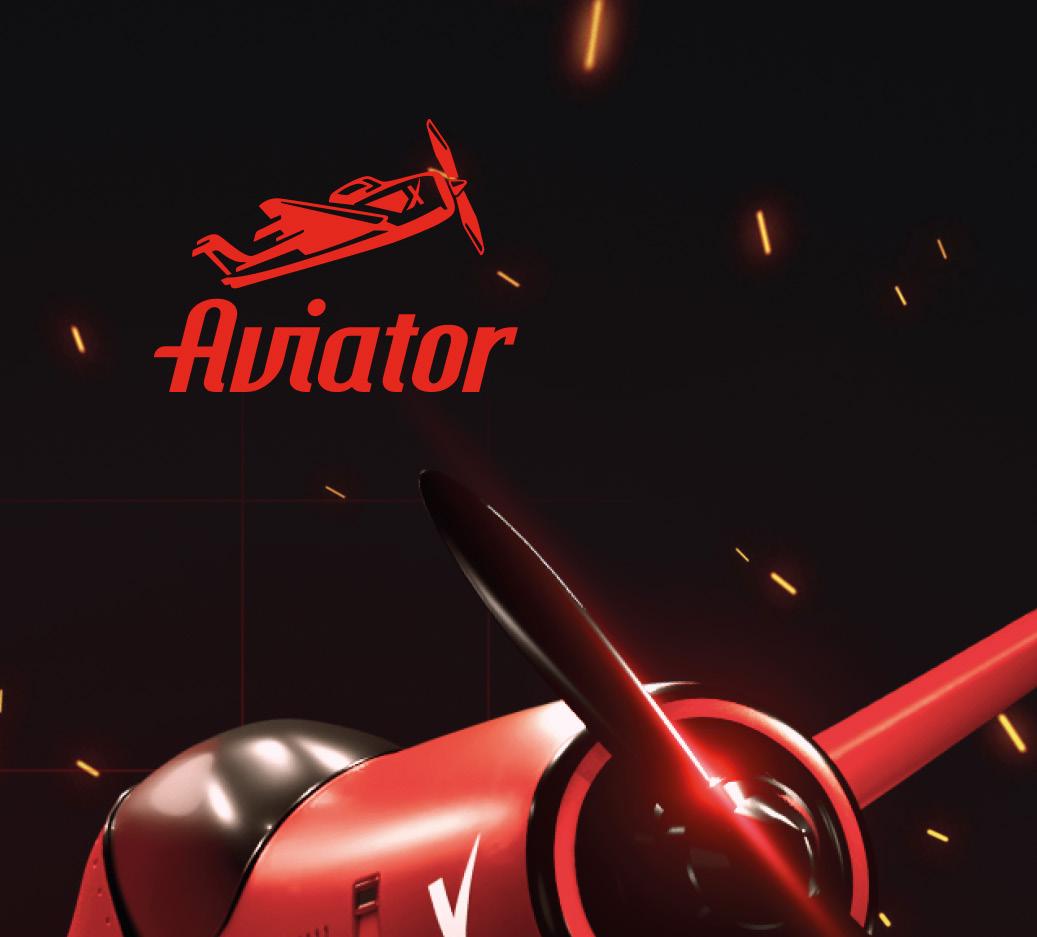
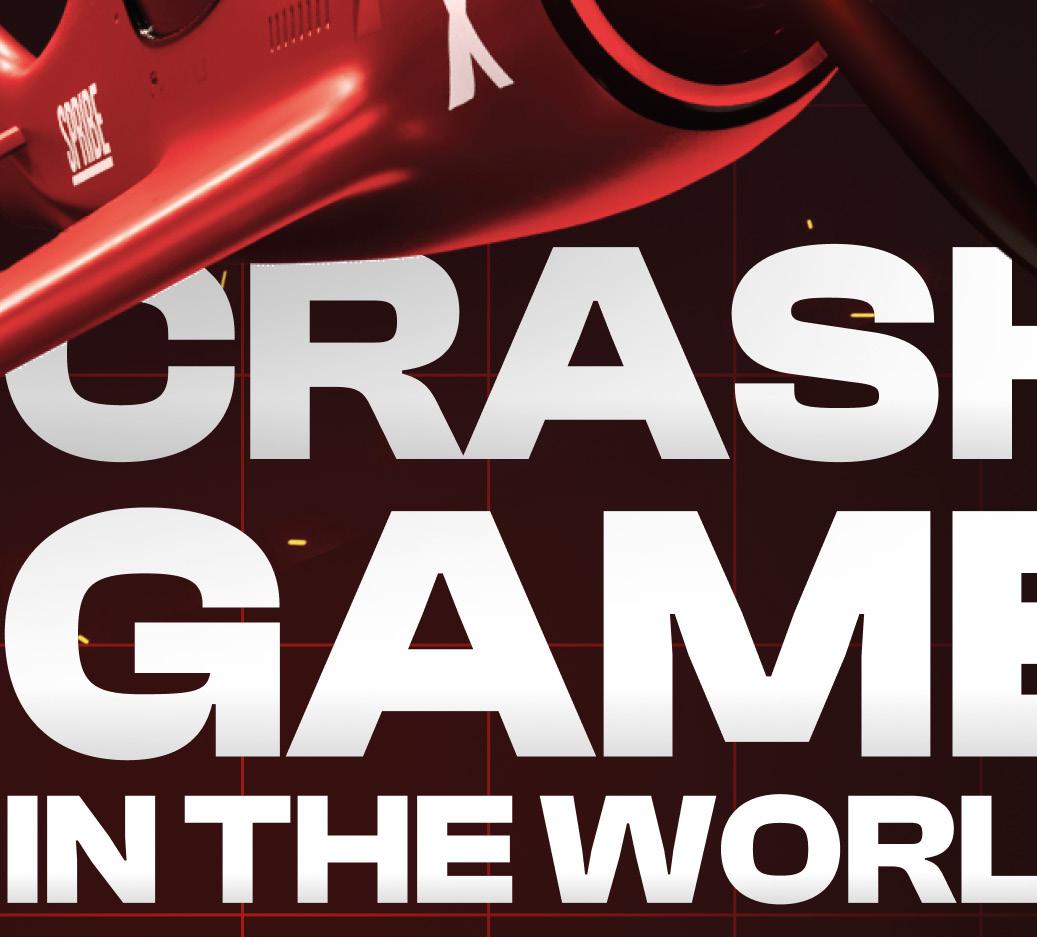






I have nothing against slots, but sometimes I feel they are a bit too flashy for my style, and poker is incredibly fun and strategic, but also, slower


We’ve heard from the industry – but how about the user? We asked one avid crash game player what drew them to the genre...
If you had to combine entertainment, self-control and real-time decision-making, what would come to mind? For me, it’s crash games. One night, with just $1 left in the game deposit account, a surprisingly lucky round turned that $1 into $20, then $50. I ordered a pizza to celebrate.
It wasn’t my first time playing, but it was the first time I truly understood the appeal: the adrenaline of timing the cashout just right, the sense of agency and control. Somewhere between watching the red plane take off, hearing the ambient pulse of the game and cashing out at 10.96x, I was completely engaged.
Looking back now, I still think about that lucky session.
Not because I won. But because it made me thoroughly think about why crash games have become a movement. It offers a unique mix of simplicity and suspense that resonates with a new generation used to very fast, innovating, interactive digital experiences. It’s not about the payout. It’s about the feeling that you’re in control, and that’s a powerful hook. For Gen Z, born into a world of games and fast-changing movements, this type of experience seems like the perfect way of having a good time.
Of course, discipline and understanding healthy gambling habits is important. It’s interesting how, when we win, we credit ourselves, we made it happen. But when we lose, the blame is all on the game. That contrast says a lot about how sometimes we’re not ready to understand the responsibility to have fun is completely in our hands.
But if you actually manage to understand crash games as a form of entertainment, it becomes a test of perspective. That night, I didn’t try to chase the next multiplier. I didn’t think of the $1 I started with as capital to protect or grow. I thought I just paid for 30 minutes of fun. And that thought shift, treating the session as entertainment, not investment, made all the difference for me and how I see it.
The chronically-online, anxious, big fan of gamification that lives in me and most of Gen Z is shaping the way the industry is seen, especially online. Gambling is not new, but companies that have taken the initiative to adapt to the way this generation lives, with mobile experiences, fast and adrenaline-chasing seem more likely to succeed – and survive – long term.
When people ask me what a crash game is, I don’t stop at “a game.” I add it feels like a mix of a TikTok binge, a Spotify shuffle and a group watch of a cool show finale – and by that I mean short, thrilling and unpredictable. It hits the same part of the brain and it gives you the strange feeling that maybe, just maybe, you can figure it out.

I have nothing against slots, but sometimes I feel they are a bit too flashy for my style, and poker is incredibly fun and strategic, but also, slower. Crash games, by comparison, are simple but never dull. There’s nothing else that makes you hold your breath quite like wondering:should I jump now? Can I stretch it to 10.00x??? Or more??? All of that while you hold your breath and celebrate after it works out!
Of course, sometimes it’ll fly off at 1.01x and the round’s over before you blink. But a good thrill isn’t always about winning, right? It’s in trying to read the rhythm. It’s in convincing yourself you’re learning the patterns. It’s in watching others in the room, seeing someone cash out at 1.50x and another hold on until 20.00x and feeling that twinge of “maybe I should have waited”... or the opposite, the “they were smart and I lost it all, why did I do that”. It’s emotional, but oddly analytical too.
Crash games don’t throw flashing jackpots at you. They don’t need 3D dragons or spinning wheels. It’s just one blue, purple and then red line flying up. And yet, it could be far more captivating than many casino games. I think it’s because it asks something of you. It asks you to make a decision, every single round. That tiny decision, “stay or go?” makes for the entire experience.
Compared to a night out at a party, a movie, or a binge-watch session, crash games feels like something you do, not just something you watch. It’s interactive and you’re part of it in the most primal way: fight or flight. Cash out or crash (pun intended).
Of course, it’s still gambling. And that needs to be said. But it’s also entertainment. It’s fun. It’s a moment. It’s an adrenaline spike that costs less than a cinema ticket, if you want it to. And like all entertainment, it depends how you frame it.
Ultimately, I love crash games because I like the idea that my fate is in my hands. That, in itself, is crash games’ simplest yet most effective innovation.
I Iove crash games because I like the idea that my fate is in my hands
